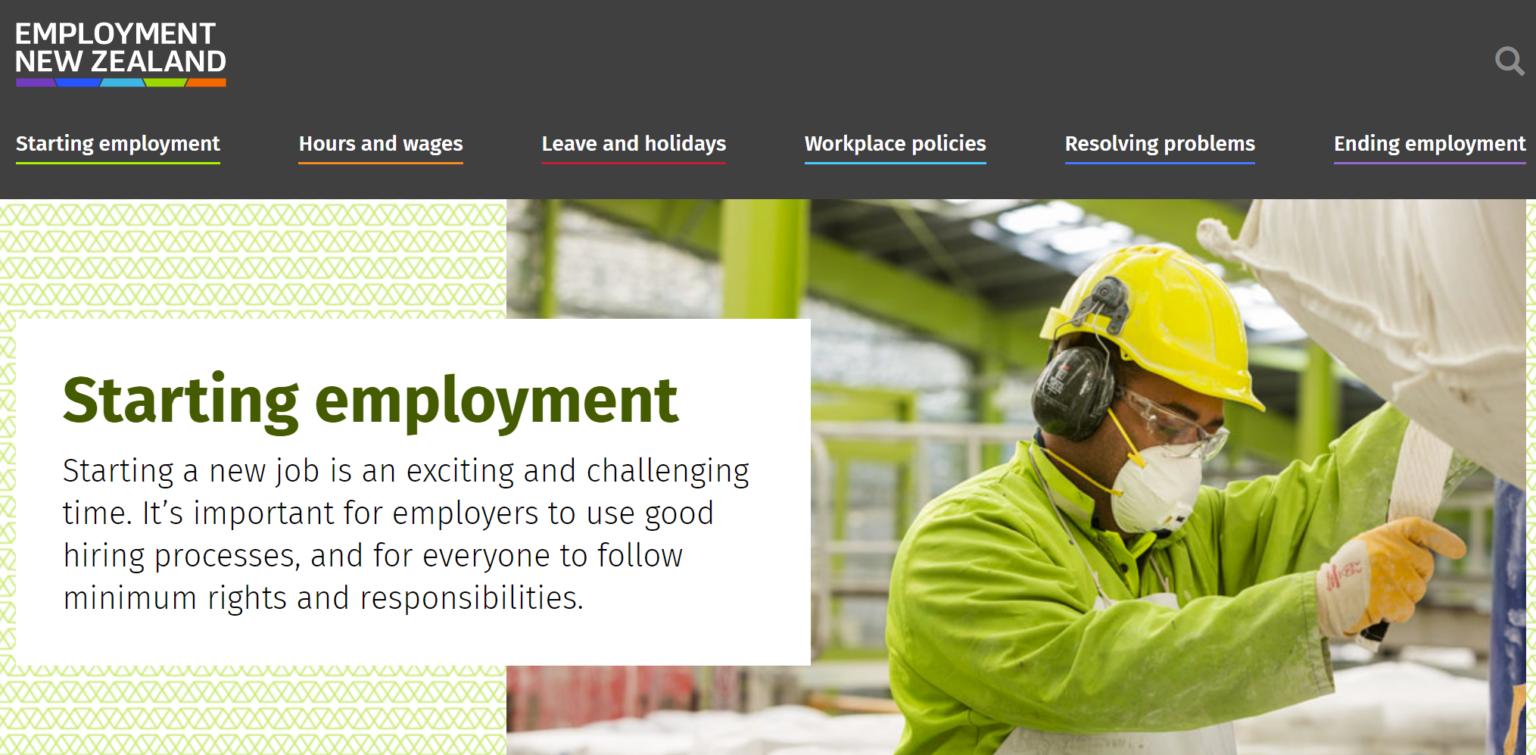News
11 Apr 2024
NZ Employment Law: A Changing Landscape

Subscribe to CX E-News
What does is it mean for you?
In October 2023, the NZ election saw a National-led coalition with ACT and NZ First take the helm, all three with commitments to change employment legislation in their manifestos. Here’s a roundup of some significant changes in employment law to date, and potentially to come.
90-day trials are now open to all businesses
The new Minister for Workplace Relations and Safety, Brooke van Velden, made a significant post- election announcement for SMEs and NZ businesses. She confirmed that 90-day trials for employees would become available to businesses of all sizes. Previously, 90-day trials were only available for businesses of 19 employees and under. Larger businesses had to use probation periods, which had different rules and regulations.
As of 22 December 2023, the Employment Relations (Trial Periods) Amendment Bill was officially passed, enabling all New Zealand businesses to use trial periods, regardless of their size. An employee dismissed during a 90-day trial period may still bring other claims, such as unjustified disadvantage or discrimination claims, provided that the claim does not relate to the dismissal. Therefore, it is important that employers carefully consider how a trial period dismissal is carried out to mitigate the risk of these other potential claims. Cases regarding statutory 90-day trial periods highlight that there is little room for employer error when it comes to drafting or applying these provisions.
Minimum Wage
From 1 April 2024, the adult minimum wage increased from $22.70 to $23.15 per hour. For a full-time employee on a 40-hr week, this equates to $48,152 per annum. Living wage is currently at $26.00 per hour (as at September 2023). The Starting Out/Training minimum wage also increased from $18.16 to $18.52 per hour.
Employers need to ensure that all employees are paid at least the minimum wage for every hour actually worked regardless of any employment agreement. Any payroll systems and employment records will also need to reflect the minimum wage changes.
Fair Pay Agreements have been scrapped
Brooke van Velden also announced that all Fair Pay Agreements legislation would be scrapped, and it was officially repealed on 20 December 2023. The FPA meant that unions and employer associations could bargain for employment terms and conditions which would then apply to all covered employees in that particular industry or occupation. While no industry groups had reached the final stage past bargaining, all applications are to cease and no more will be started. The removal of this will not affect all workplaces or employees but if you think it affects your area, you may wish to seek specific advice. Collective bargaining remains available for unions and employers under the Employment Relations Act.
The Holidays Act – under review but “a priority”
Known to create headaches for businessowners due to some ambiguous guidelines and contradictions, the previous government ran out of time to introduce the bill of proposed Holidays Act amendments before the election. It is however a priority for van Velden. Changes proposed by the review committee include annual holiday payments, previously paid at average weekly earnings over the last 12 months, now possibly being paid at the average weekly earnings over the last 13 weeks.
There could also be a change to leave entitlement. Many types of leave in New Zealand require employees to have worked for their employer for a certain period of time before they can be taken e.g. employees are entitled to four weeks leave after twelve months of employment; for family violence leave, bereavement leave, alternative days, public days and sick leave, employees need to have worked for six months. Under the new changes employees could be entitled to these types of leave from the first day of employment, with annual leave permitted in the amount they would be eligible on a pro rata basis.
PAYE is also expected to be clarified, particularly how it applies to intermittent or irregular work. The new recommendations will have a clearer definition of this type of employment. Employers also will not be able to pay PAYE for employees on a fixed term contract less than twelve months.
Good news for those coming back from parental leave, and something employers will need to note, is the possible end of the parental leave override (PLO). PLO means every employee who takes parental leave receives reduced annual leave pay for twelve months following their return to work. The review recommended this be scrapped.
Adapting to the proposed changes may take a bit of work on behalf of employers but will reduce the risk of non-compliance in the long term, benefiting all parties. A good payroll software provider will automatically roll out the proposed changes across their systems.
And there’s more:
The Government’s coalition agreements indicate that further reform to employment law will be explored over the next three years. Potential reforms signalled in the coalition agreements include disqualifying contractors engaged pursuant to an independent contractor agreement from claiming that they are employees; setting an income threshold for raising personal grievances; barring employees from being able to claim remedies for a personal grievance where they are at fault; and “Reform [of] health and safety law and regulations.” Some of these could potentially of great interest to the live entertainment sector.
It is worth keeping an eye on the Ministry of Business, Innovation and Employment’s website and thinking about how you will enact the changes across your business when they arrive.
Subscribe
Published monthly since 1991, our famous AV industry magazine is free for download or pay for print. Subscribers also receive CX News, our free weekly email with the latest industry news and jobs.






